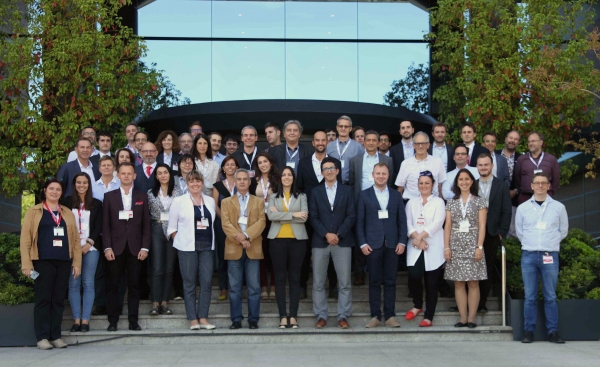Â
Most heating and air-conditioning systems in the world work on an individual basis, meaning that each household has its own device to heat or cool the home. But what would happen if only one system were needed to control temperatures in all the dwellings in a neighborhood? And what if this system combined several renewable sources able to guarantee the entire energy demand?
Demonstrating the feasibility of this idea is exactly the main goal of Wedistrict, https://www.wedistrict.eu/, an international project in which the University of Cordoba is participating along with 22 other associated organizations. With a budget of nearly 20 millon euros, they have gotten down to work at finding a sustainable solution for heating and air-conditioning systems.
The first district systems began to be implemented a few decades ago in Nordic countries, though many have yet to guarantee their effectiveness via solely renewable energy. In these systems, cool or hot air is produced at a plant and then distributed to an urban network by means of underground piping, in the same way that water and gas are distributed. Over the next few years, Wedistrict will get these networks operating at four pilot facilities located in Romania, Poland, Sweden and Alcalá de Henares (Madrid, Spain), the fourth being located at CEPSA’s R&D plant.
Low emission biomass, tanks for molten salt thermal storage and absorption machines, in addition to three kinds of solar thermal technology (CSP, Fresnel and flat collectors) are some of the innovative kinds of technology that will be jointly tested at the Alcalá de Henares (Madrid, Spain) facility. The idea is to hybridize these renewable sources into one district heating and air-conditioning network in order to cover all the energy needed for several buildings at the same time year-round.
The RACU prototype, an UCO design that changes heat into cold
Specifically, the TEP974 Research in Applied Thermal Engineering research group, http://www.uco.es/rate/, at the University of Cordoba is in charge of designing, manufacturing and supplying a new prototype called RACU, which stands for Renewable Air Cooling Unit. The system will be connected to the hot water network, and that heat, coming from biomass and thermal energy, will be transformed into cold air by means of a procedure based on indirect water evaporation combined with dessicant wheel technology.
“The air is first dried in a dessicant wheel and later is cooled off upon water evaporation. The cooled air cools off a second current of air which is pushed into the building space”, explains UCO project leader, Manuel Ruiz de Adana. The main advantages of the system, says the researcher, are that “it foregoes any cooling substances that pollute” and “it guarantees high air quality, since it all comes from outside, and uses less energy”.
The prototype, currently being built by a company in Cordoba under the supervision of the research group, will be tested at the Heating and Cooling Systems Research Laboratory (abbreviated to LAVEC in Spanish) at the University of Cordoba. Later, it will be integrated into the district web in Alcalá de Henares, where it will be operating for a year to demonstrate its feasibility.
According to data from the European Commission, heating and cooling in buildings currently makes up half of the energy use in the EU, and 70% of that energy comes from fossil fuels. Hence, future energy sustainability will depend a great deal on the way our society heats and cools down their homes.
Â
The WEDISTRICT project “Smart and local reneWable Energy DISTRICT heating and cooling solutions for sustainable living” (H2020-LC-SC3-2019-RES-8-857801)is funded by the European Union under the H2020-LC-SC3-2018-2019-2020 call. Information about the project: https://www.wedistrict.eu/
This article is part of the communication strategy designed by the International Project Office to divulge the international projects granted to the University of Cordoba.


